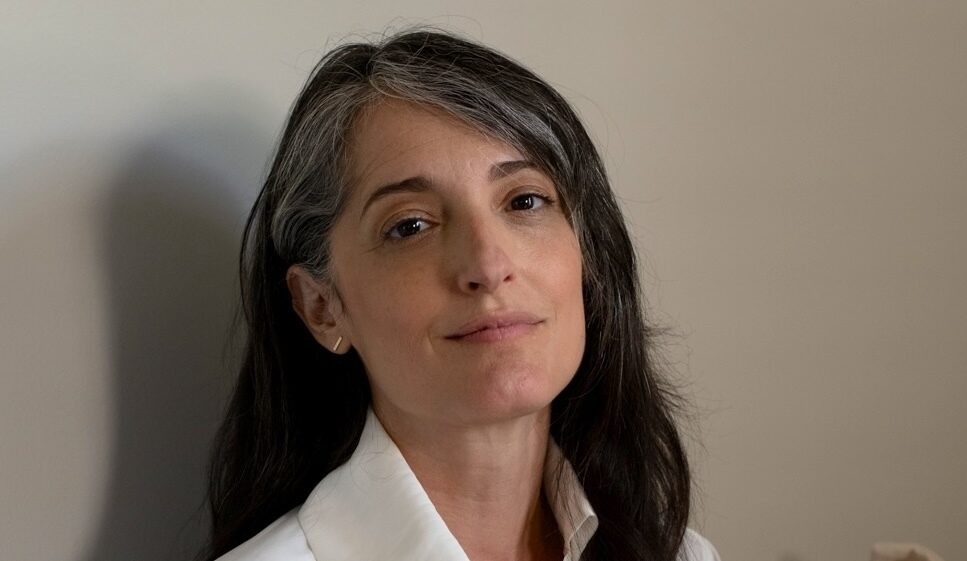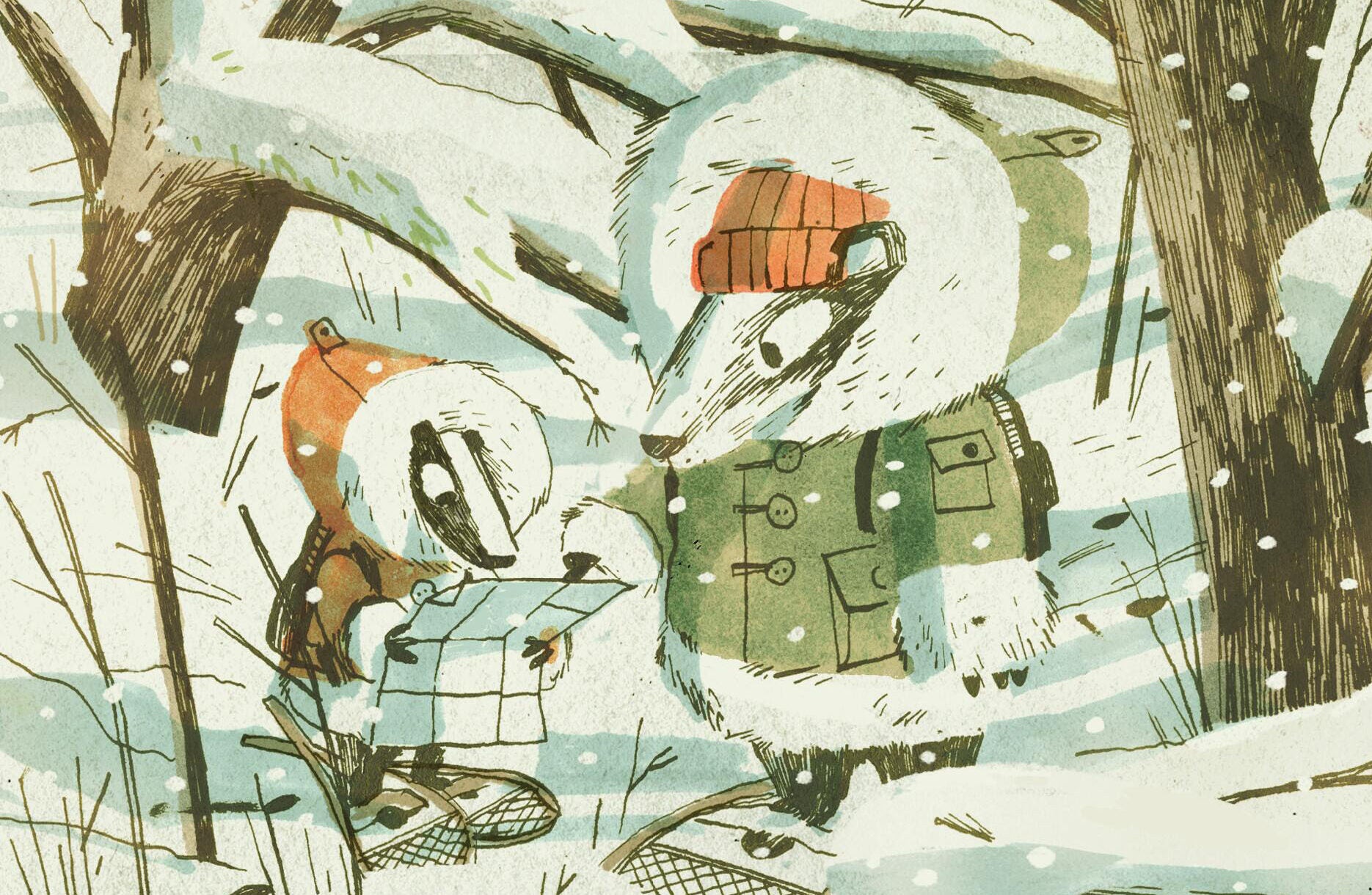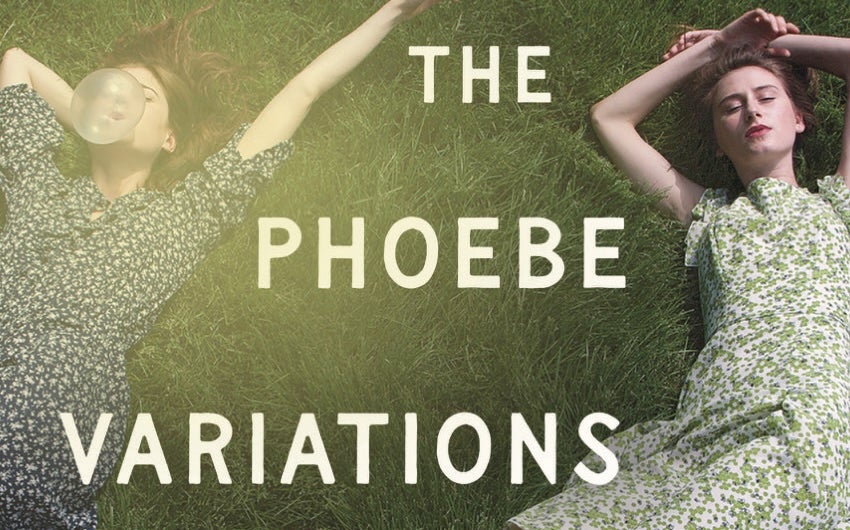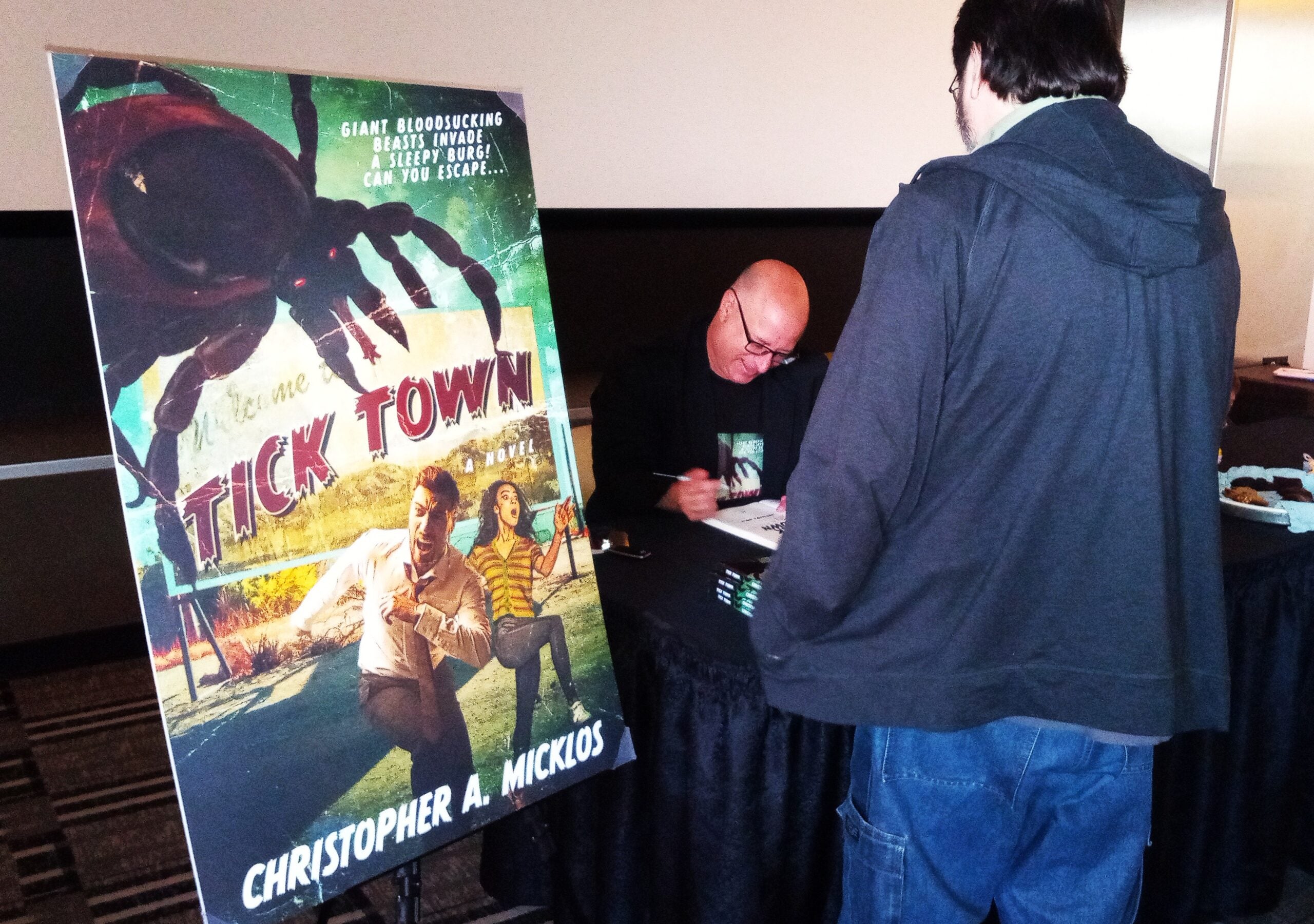Glamour magazine says that Rachel Yoder’s novel, “Nightbitch,” “feels like reading a deliciously long text from your smartest friend, with a hint of Kafka.“
I totally agree. It’s very Kafkaesque and very Yoderesque.
“Nightbitch” is the story of an artist mother who takes a break from her career to stay home and raise her young son. Two years later, Mother discovers a patch of hair on the back of her neck and her canine teeth look sharper. Darkly comedic hijinks ensue.
“Nightbitch” is also a movie starring Amy Adams.
News with a little more humanity
WPR’s “Wisconsin Today” newsletter keeps you connected to the state you love without feeling overwhelmed. No paywall. No agenda. No corporate filter.
Our esteemed colleague Maureen McCollum, host of WPR’s “Wisconsin Life,” made time to talk with Yoder on WPR’s “BETA” about motherhood, reactions to the book, the film and what it might be like to live a dog’s life.
The following interview has been edited for clarity and brevity
Rachel Yoder: I would describe “Nightbitch” as a joke that went a lot further than I ever thought I would take it. “Nightbitch” was a sort of inside joke my husband and I had when I would turn feral at night after three years of my son not sleeping through the night.
And it started out as just a really bad idea. You know, I definitely shouldn’t write a book about a mom who turns into a dog because that was such an absurd and bad idea. Of course, I started writing that because I do like that sort of challenge of a bad idea. And the absurdity.
I needed an idea that wasn’t just deadly serious because I was at a point in my life where I was so angry and so confused about what was going on with me that writing something serious would have been too heavy. So, I needed the lightness and absurdity in play that “Nightbitch” brought me.
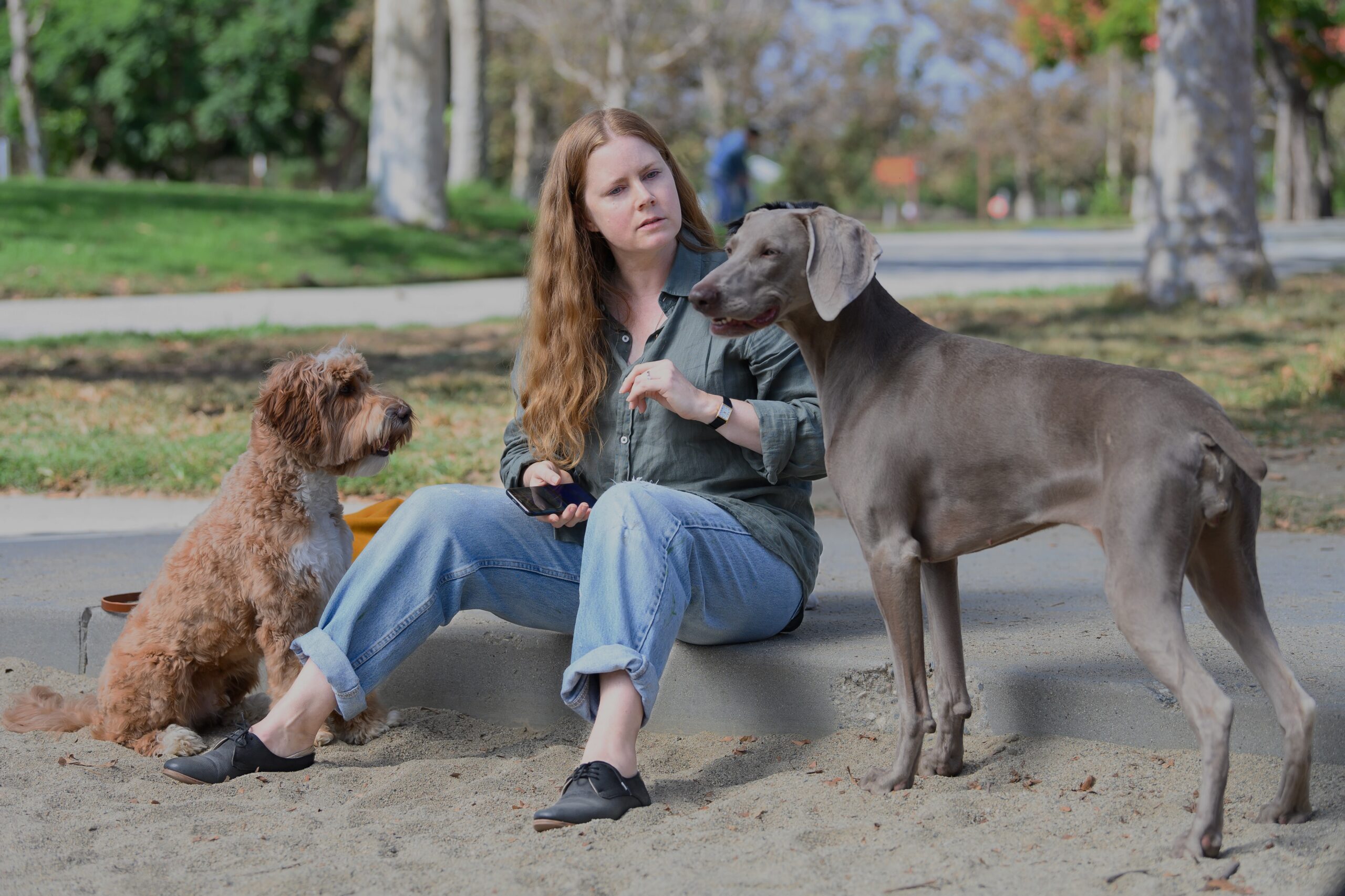
Maureen McCollum: How did you bring the idea of what was happening to you and channel that into the character of the mother in the novel?
RY: Well, I hadn’t written in a couple of years, and writing ever since I was in my 20s has really been my way of making sense of my experience in the world. So, I didn’t have that sense-making tool for those two years.
When I did go over to the coffee shop and sit down, I would just write for two or three hours, and I had a goal where I’m just going to write whatever comes out of me, a thousand words for two weeks every day. And this book is what came out.
So, it wasn’t like I had some grand plan going into it. I sort of happened upon the voice of the book, and that voice felt really energetic. It felt really vital. It felt like it had a lot of things to say. So I thought, well, why don’t I just give that voice all the room at once to say whatever it needs?
MM: At one point in the book, Mother notices a flurry of hair poking out from an incision that she’s made, and she describes it as a tail. She basically seems resigned to this fact that she’s turning into a dog, or she has this dog within her. What’s the metaphor there and what does this says about motherhood or life?
RY: Well, I hope that there’s enough ambiguity in the book that people can read it that she’s literally turning into a dog or that maybe this is just something that’s going on in her mind.
And I think having gone through pregnancy and birth myself, things happened to my body that seemed unimaginable and impossible. So, the thought of a tail seemed minor in comparison, and in the experience of growing a whole other human inside you all seems, you know, it’s very primal and also very alien.
This idea of her turning into a dog again, I didn’t really know what it meant. I didn’t know what the metaphor was when I started writing it. I knew, though, that being pregnant and having a kid had really put me in touch with being an animal with this idea that I’m part of the mammalian community.
I had never felt more like an animal in the delivery room. And then when I was breastfeeding him, and I had never felt such a deep biological pull toward staying home and taking care of him.
And all that was puzzling to me because I knew myself to be someone who was really interested in her career. And so there was this inherent tension then when I became a mother, between that pull, the biological pull, and then my other urges for my own identity, I guess.
MM: Your book, “Nightbitch” was turned into a movie that came out last year. It stars Amy Adams and was written and directed by Marielle Heller. What did you think of the movie when it came out?
RY: I love the movie, and I love that Marielle took the story and made it hers. And she put a lot of herself into the film. And I know Amy put a lot of herself into the film. She gave an incredible performance, so it really seemed like the book was sort of happening in real life, in a way.
And so the whole process has been incredibly surreal. Turning on Hulu and seeing “Nightbitch” on the screen, I don’t quite know what universe I’m in. Still figuring it out, but the whole thing has been wonderful.
MM: The opening scene of the movie, when the mother is in the grocery store with her toddler and they’re just having a delightful time shopping around, and suddenly she runs into someone — can you explain what happens?
RY: Yeah, she runs into her former colleague. And you know, the simple question comes up of “How’s it going? Don’t you just love being at home with your kid all the time?” Which I would also get. And I did feel lucky.
But there was a part of me that wanted to answer honestly, which is what the mother character in the movie does, in one version.
MM: “How do you like being home with your child?” And you’re like, “Do I want to be a bummer right now? Or do I want to be the honest person I usually am?”
I just thought the way that that was set up was so perfect and so relatable, and I knew I was in for quite a ride with that coming right off the bat.
RY: I’m so glad to hear that. And I think it’s so funny because this is a film maybe not for male film reviewers, maybe this is a film for moms. And the response that I’ve heard has overwhelmingly been, “Wow, I’ve never seen this before. I’ve never seen what I have gone through before on screen. This is incredible.”
It was cathartic, and it just seems like what Marielle has done is incredibly important in terms of representation, in terms of showing an experience that does not get airtime and historically has been viewed as not that interesting, not something important for art to deal with.
I also struggled with that when writing the book. I didn’t want to write a motherhood book because it seemed unserious in some way, or like I was limiting my audience. And now I’m of the mind that I think motherhood books are on par with war books, right? Like, I think that’s one of the most important and most vital things that needs to be written about.
MM: I had read that after one of the screenings of the movie, a man in the audience asked Amy Adams if she had considered making a movie about a father who has to go to work and worries if he can support his family or not. Have you read about this? And do you know what Amy and Muriel’s reaction was?
RY: I haven’t, but I’m so curious.
MM: So apparently they both responded with guffaws. Heller said that she had been asked a similar question by another man who then said, “When do we get the husbands’ movie?”
I’m sure there are some men who have watched this movie and they took it as a learning experience; they took it as a way to say like, “Wow, I had no idea that this was going on internally.“
I think that the husband is quite clichéd in the movie, but I’ve also known men who behave like that as fathers. But then there’s that almost like third bucket of the men who just take total offense to it.
RY: Yeah. Isn’t that interesting that it’s not about a mother and her struggles, but it’s about how her needs are offensive to her husband. And I think that’s why we need the movie.

